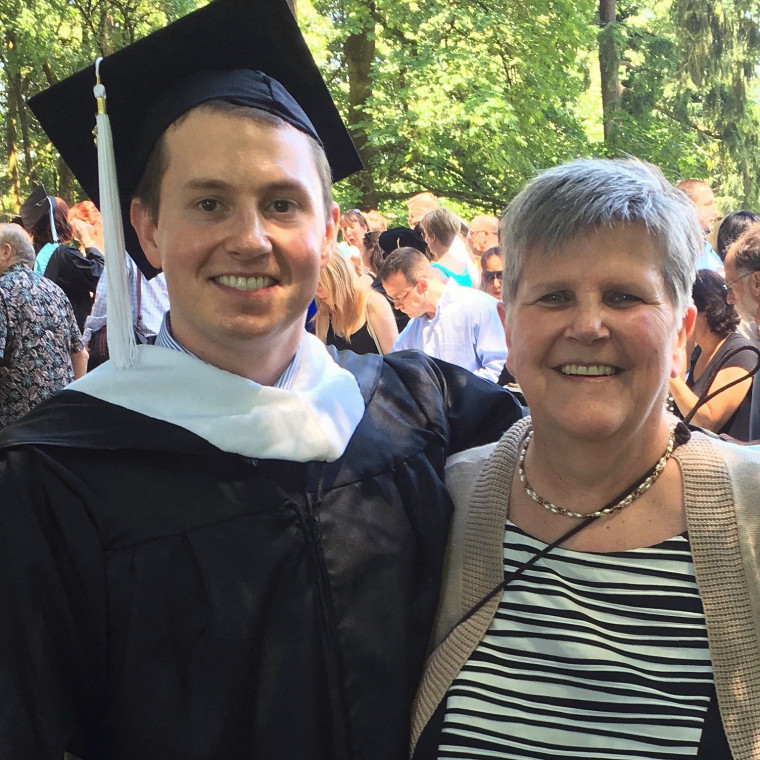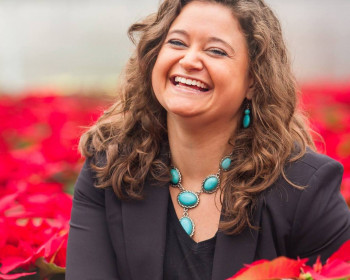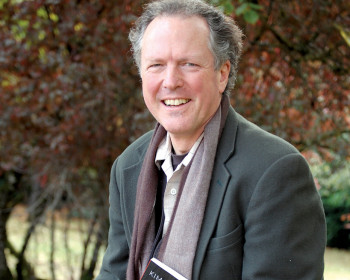M.S. student’s research offers insight into lifestyle and suicidality correlation in young adults
Open gallery

Brian Bauer, M.S., Counseling Psychology ’16, arrived at the Lewis & Clark Graduate School of Education and Counseling with a clear research plan in mind: to study whether an individual’s involvement in extracurricular activities is associated with lower suicidality. In fact, he selected the Graduate School specifically for the unique masters of science option.
“First and foremost, Lewis & Clark allowed me the opportunity to obtain both research experience and clinical training,” Bauer said of his decision to enroll. “I firmly believe that gaining as many different views as possible is crucial to becoming a successful researcher. Through this exposure, I am able to either adopt a new stance on a topic or I end up having a greater foundation for the reasoning in holding my prior beliefs. Ultimately, Lewis & Clark allowed me to grow in numerous ways [as a student and researcher].”
Bauer’s work is based on Thomas Joiner’s interpersonal-psychological theory of suicidal when people hold the two psychological states of perceived burdensomeness and a sense of low belongingness or social alienation in their minds simultaneously, and when they do so for long enough, they develop the desire for death.
Intrigued by this assertion, Bauer hypothesized that people who have a higher participation rate in extracurricular activities would then have a greater sense of belonging and possibly effectiveness, thus resulting in a lower rate of suicidality.
“Very little work has been done previously to illustrate statistically the mechanisms by which extracurricular activities can impact suicidality,” said Carol Doyle, PhD, and chair of Bauer’s thesis committee. “Brian’s commitment to the topic is impressive, and the statistical work that he has done goes far beyond that of a typical master’s thesis.”
Bauer’s first step was to recruit volunteers to participate in his study. He defined his target audience as young adults aged 18-24 who would reflect a range of experiences and circumstances that he believed would lead them to express varying degrees of connectedness and suicidality. Initially, Bauer recruited participants by posting flyers where he predicted his varied demographic would see them: across college campuses and at NA and AA meetings.
“NA and AA meetings were targeted because drug and alcohol abuse has previously been associated with suicidality,” Bauer explained. “Since suicide is a relatively rare phenomenon, I wanted to target a couple of populations that I thought might have increased rates of suicidality.”
After successfully filling 25% of his participant need in this manner, he leveraged Amazon’s Mechanical Turk to recruit the remainder that he needed, ending with a total of 121 completed surveys. Bauer applied two widely used tools for statistical analysis—SPSS and Mplus—to interpret the results. SPSS produced bivariate correlations and Mplus provided structural equation modeling (SEM).
“It is difficult to say I was ‘happy’ with my results, because we are talking about people going through very difficult times,” Bauer said of his findings. “However, I can say that my results were extremely interesting. The results supported my initial hypothesis—engaging in extracurricular activities is associated with lower suicidality by way of increasing a person’s sense of connectedness and effectiveness.”
Originally from Issaquah, Washington, Bauer was the first of his family to complete higher education. His interest in suicidality began when he was a phone volunteer at the King County Crisis Clinic in Washington, where he was astounded at the number of calls he took regarding suicide.
“I am interested in the puzzle that is suicide,” Bauer said, reflecting on his topic of choice. “People have died by suicide for a long time, and despite a concerted effort from a large number of very intelligent individuals, suicide rates have actually increased by about 24% over the last fifteen years.”
Even with a B.A in psychology and a BA in philosophy from the University of Washington, and now an M.S in counseling psychology from Lewis & Clark, Bauer is not through with his studies. He is headed to the University of Southern Mississippi to embark on his PhD, where he will work with Dan Capron, PhD, in the Anxiety and Trauma Research Program (ATRP). Bauer will continue to study suicide by working with virtual reality, computerized interventions, and indirect measurements.
Graduate Communications is located in room 205 of Rogers Hall on the Graduate Campus.
voice 503-768-6054
fax 503-768-6053
Graduate Communications
Lewis & Clark
615 S. Palatine Hill Road
Portland OR 97219

